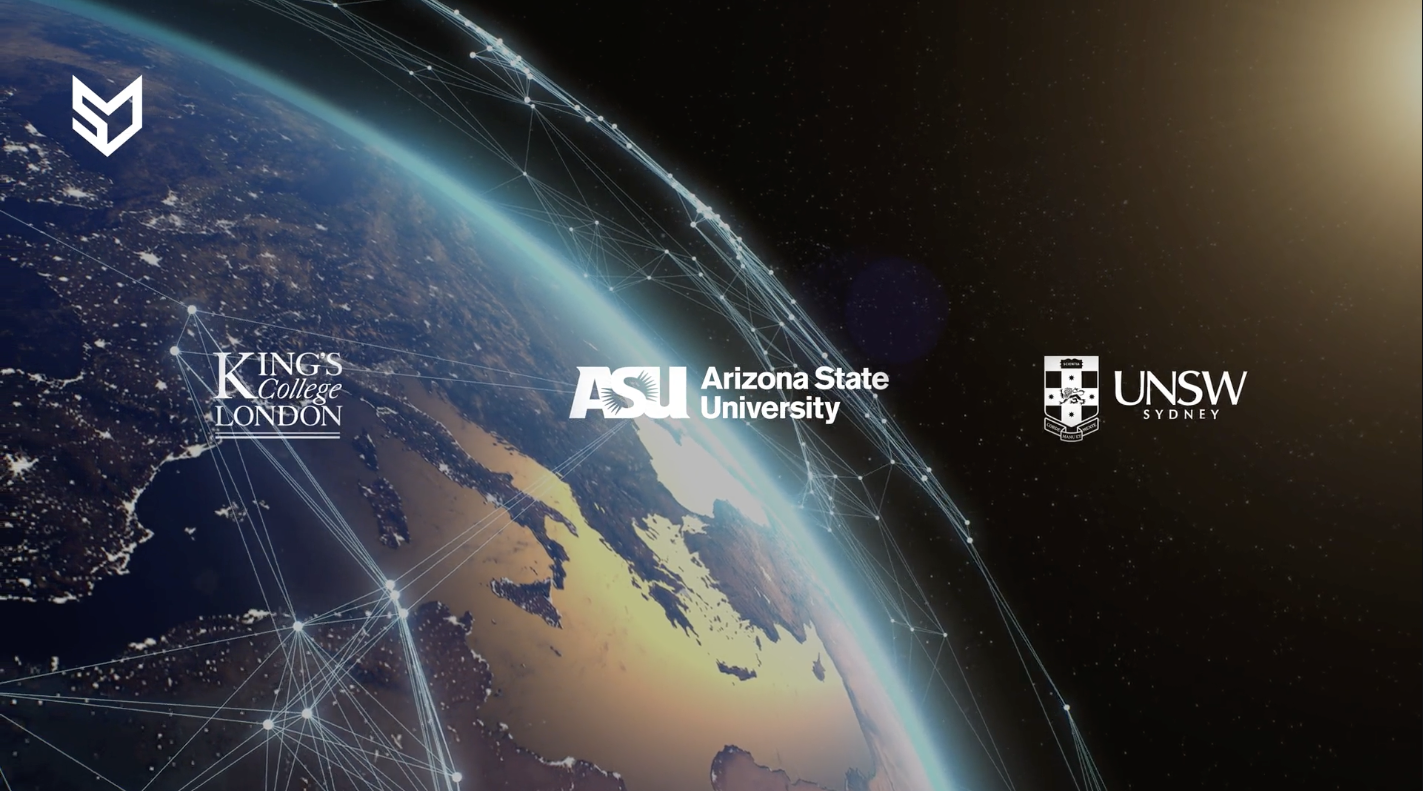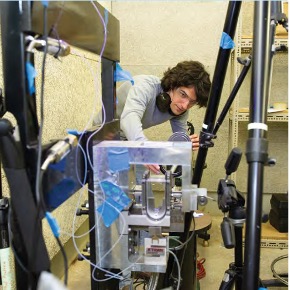King’s College London, Arizona State University and UNSW Sydney – just like leading research-intensive universities around the world – have been at the forefront of COVID-19 research. This work includes ways to trace the pandemic, how to monitor and extrapolate its trajectory, designing medical equipment to help those infected, developing ways to protect those who come into close proximity to the virus from harm, and looking at interventions to help people overcome the impact on mental health. We are pleased to share a snapshot of some of the initiatives you may not be aware of and updates on the progress of others.
Finally the ASU/Devex Global Hackathon brought some inspirational ideas from students to address five of the UN SDGs.
COVID-19 initiatives
1. At ASU a new approach to monitoring the novel coronavirus (as well as other dangerous pathogens and chemical agents) is being developed and refined. Known as wastewater-based epidemiology (WBE), the method mines sewage samples for vital clues about human health. It can potentially identify levels of coronavirus infection at both a local and global scale.
2. ASU have developed a new saliva based COVID-19 test, which is easy to administer and cheaper to process than previous tests.
3. Arizona State University’s Global Futures Laboratory, in partnership with Foreign Policy, convened a panel of leading global thinkers to discuss the surprising but powerful links among the coronavirus, climate change and inclusive governance.
“Scientists warn, COVID-19 is not a black swan event. Rather, as astrophysicist Adam Frank has pointed out, it’s a ‘fire drill’ for climate change,” explained Amanda Ellis, director of global partnerships at ASU Global Futures Laboratory. “We need to build back better and create a new normal to keep our planet habitable. To do that, we must call out the failures of global governance and the inconsistencies of national governments.”
4. Reopening business with ASU.
ASU is supporting local, national and international partners as they reopen during the COVID-19 pandemic. Providing expert-driven business solutions, customized to individual needs, reimagining the workplace in a COVID-19 world.
5. King’s College London - Spotlight on COVID interview
How engineering is contributing to vaccine manufacture. In this interview, Harris Makatsoris, Professor of Sustainable Manufacturing Systems at King's College London (in main photograph), discusses how his novel process of intensification technology for vaccine production has helped to scale up production of the COVID-19 vaccine substances discovered by his fellow scientists. His innovative ‘factory-in-a-box’ solution enables vaccines to be manufactured quickly where they are needed, such as in hospitals.
6. A study published in the Lancet by researchers at King’s research team, led by Professor Tim Spector details the modelling behind the ZOE COVID Symptom Study App.
They found that self-reported data from over 2.8 million volunteer users of the app living in England, including more than 120 million daily assessments logged by those users, can be used to provide accurate estimates of COVID-19 prevalence and incidence, and timely identification of regional infection hotspots.
7. Coronavirus COVID-19
Professor Martin Prince, Director of the King’s Global Health Institute, talks to Spotlight reporter Franca Davenport about how the ASSET (HeAlth System StrEngThening in Sub Saharan Africa) project is collecting data on COVID19 infections to inform responses during the pandemic. See the video on the project at ASSET video
8. Ute Stephan, Professor of Entrepreneurship at King's Business School, discusses the challenges and opportunities for women entrepreneurs during the pandemic and the importance of looking after their mental health for their businesses. She also covers how entrepreneurs have had to adapt and whether these changes will be incorporated into business models long-term.
9. UNSW researcher receives $16m to build a motor made from proteins
In an Australian first, UNSW Sydney's Paul Curmi will use a European Research Council Synergy grant to develop an artificial biological molecular engine.
10. Low levels of infection in Sydney during the first COVID-19 wave, revealed in antibody study
Only a small proportion of Sydney’s population were infected by SARS-CoV-2 earlier this year. Read the new report co-authored by UNSW’s Kirby Institute.
11. Genomic leaders including UNSW Sydney, collaborate to create Australia’s first national
COVID-19 tracking system. Australian public health laboratories will aim to sequence the virus genomes of all positive COVID-19 tests in Australia and track COVID-19 using genomics across the country, rather than state by state, under a ground-breaking initiative spearheaded by Australia’s public health laboratory organisations and leading industry partners.
12. UNSW Engineering ranked first in Australia in Times Higher Education subject rankings
UNSW Sydney has claimed Australia’s top spot for both engineering and technology, and for computer science, in the Times Higher Education (THE) World Rankings by Subject. UNSW moved up 11 places for engineering and technology, entering the top 50 for the first time at 48th.


